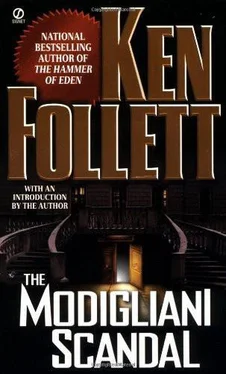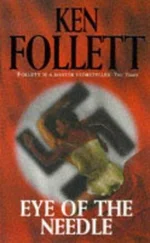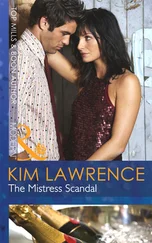The Modigliani Scandal
A high-speed, high-stakes thriller from Ken Follett,
the grand master of international action and
suspense
A fabulous ″lost masterpiece″ becomes the ultimate prize-for an art historian whose ambition consumes everyone around her, an angry young painter with a plan for revenge on the art establishment, and a desperate gallery owner who may have double-crossed his own life away. Behind the elegance and glamour of the art world, anything goes—theft, forgery, betrayal, and maybe even murder....
INTRODUCTION
IN A MODERN THRILLER the hero generally saves the world. Traditional adventure stories are more modest: The central character merely saves his own life, and perhaps the life of a faithful friend or a plucky girl. In less sensational novels—the middlebrow, well-told narratives that have been the staple diet of readers for more than a century—there is less at stake, but still a character′s efforts, struggles, and choices determine his destiny in a dramatic fashion.
I don′t actually believe that life is like that. In reality, circumstances quite beyond our control usually determine whether we live or die, become happy or miserable, strike it rich or lose everything. For example: Most rich people inherit their money. Most well-fed people simply had the luck to be bom in an af fluent country. Most happy people were born into loving families, and most miserable people had crazy parents.
I′m not a fatalist, nor do I believe that everything in life is blind chance. We do not control our lives the way a chess player controls his pieces, but life is not roulette either. As usual, the truth is complicated. Mechanisms beyond our control—and sometimes beyond our understanding—debermine a person′s fate, yet the choices he makes have consequences, if not the consequences he anticipated.
In The Modigliani Scandal I tried to write a new kind of novel, one that would reflect the subtle subordination of individual freedom to more powerful machinery. In this immodest project I failed. It may be that such a novel cannot be written: Even if Life is not about individual choice, perhaps Literature is.
What I wrote, in the end, was a lighthearted crime story in which an assortment of people, mostly young, get up to a variety of capers, none of which turns out quite as expected. The critics praised it as sprightly, ebullient, light, bright, cheery, light (again), and fizzy. I was disappointed that they had not noted my serious intentions.
Now I no longer look on the book as a failure. It is fizzy, and none the worse for that. The fact that it is so different from the book I intended to write should not have surprised me. After all, it rather proves my point.
—KEN FOLLETT, 1985
PART ONE
Priming the Canvas
″One does not marry art. One ravishes it.″
EDGAR DEGAS,
Impressionist painter
I
THE BAKER SCRATCHED HIS black mustache with a floury finger, turning the hair gray and unintentionally making himself look ten years older. Around him the shelves and counters were full of long loaves of fresh, crusty bread, and the familiar smell filled his nostrils and swelled his chest with a quietly satisfied pride. The bread was a new batch, the second that morning: business was good because the weather was fine. He could always rely on a little sunshine to bring the housewives of Paris out into the streets to shop for his good bread.
He looked out of the shop window, narrowing his eyes against the brightness outside. A pretty girl was crossing the street. The baker listened, and heard the sound of his wife′s voice, out in the back, arguing shrilly with an employee. The row would go on for several minutes—they always did. Satisfied that he was safe, the baker permitted himself to gaze at the girl lustfully.
Her summer dress was thin and sleeveless, and the baker thought it looked rather expensive, although he was no expert in such things. The flared skirt swung gracefully at midthigh, emphasizing her slim bare legs, promising—but never quite delivering—delightful glimpses of feminine underwear.
She was too slender for his taste, he decided as she came closer. Her breasts were very small—they did not even jiggle with her long, confident stride. Twenty years of marriage to Jeanne-Marie had not made the baker tire of plump, pendulous breasts.
The girl came into the shop, and the baker realized she was no beauty. Her face was long and thin, her mouth small and ungenerous, with slightly protruding upper teeth. Her hair was brown under a layer of sun-bleached blonde.
She selected a loaf from the counter, testing its crust with her long hands, and nodding in satisfaction. No beauty, but definitely desirable, the baker thought.
Her complexion was red-and-white, and her skin looked soft and smooth. But it was her carriage that turned heads. It was confident, self-possessed; it told the world that this girl did precisely what she wanted to do, and nothing else. The baker told himself to stop playing with words: she was sexy, and that was that.
He flexed his shoulders, to loosen the shirt which was sticking to his perspiring back. ″Chaud, hein?ʺ he said.
The girl took coins from her purse and paid for her bread. She smiled at his remark, and suddenly she was beautiful. ″Le soleil? le l′aime,″ she said. She closed her purse and opened the shop door. ʺMerci!ʺ she flung over her shoulder as she left.
There had been a trace of accent in her French—an English accent, the baker fancied. But perhaps he had just imagined it to go with her complexion. He stared at her bottom as she crossed the street, mesmerized by the shift of the muscles under the cotton. She was probably returning to the flat of some young, hairy musician, who would still be in bed after a night of debauchery.
The shrill voice of Jeanne-Marie approached, shattering the baker′s fantasy. He sighed heavily, and threw the girl′s coins into the till.
Dee Sleign smiled to herself as she walked along the sidewalk away from the shop. The myth was true: Frenchmen were more sensual than Englishmen. The baker′s gaze had been candidly lascivious, and his eyes had homed in accurately on her pelvis. An English baker would have looked furtively at her breasts from behind his spectacles.
She slanted her head back and brushed her hair behind her ears to let the hot sun shine on her face. It was wonderful, this life, this summer in Paris. No work, no exams, no essays, no lectures. Sleeping with Mike, getting up late; good coffee and fresh bread for breakfast; days spent with the books she had always wanted to read and the pictures she liked to see; evenings with interesting, eccentric people.
Soon it would be over. Before long she would have to decide what to do with the rest of her life. But for now she was in a personal limbo, simply enjoying the things she liked, with no rigid purpose dictating the way she spent every minute.
She turned a comer and entered a small, unpretentious apartment block. As she passed the booth with its tiny window, there was a high-pitched cry from the concierge.
″Mademoiselle !″
The gray-haired woman pronounced each syllable of the word, and managed to give it an accusatory inflection, emphasizing the scandalous fact that Dee was not married to the man who rented the apartment Dee smiled again; an affair in Paris would hardly be complete without a disapproving concierge.
″Telegramme ,″ the woman said. She laid the envelope on the sill and retired into the cat-smelling gloom of her booth, as if to dissociate herself entirely from loose-moraled young girls and their telegrams.
Читать дальше












